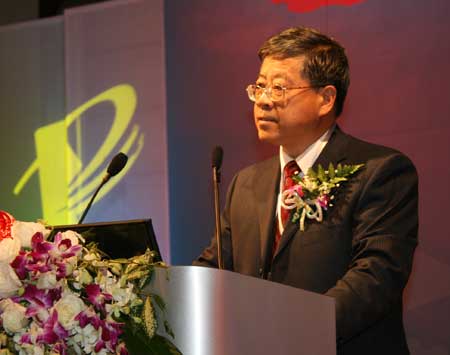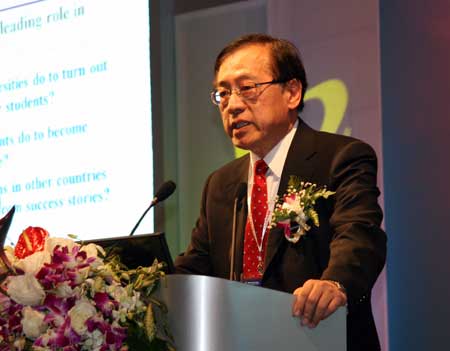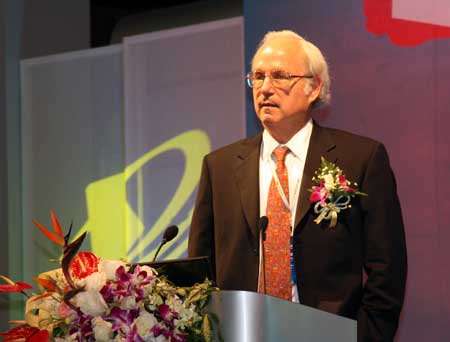By Wang Wei
China.org.cn staff reporter
The correct response to today's economic challenges is scientific innovation. That was the common theme emerging from discussions at the 2008 Zhongguancun Forum.
The two day forum opened on November 14 at the Nirvana Resort in Beijing. Jointly organized by the Ministry of Science and Technology, the Chinese Academy of Sciences and the People's Government of Beijing, the 2008 Zhongguancun Forum gathered Nobel laureates, scholars and experts from around the world, representatives of international organizations, entrepreneurs and government officials for an in-depth discussion on the topics of innovation, development and international cooperation in the field of high technology.
Training innovators
|

|
|
Wu Jisong |
"Ill-thought out, unscientific, and excessive financial innovation gave birth to financial derivatives, which, in turn lead, in large part, to the present financial crisis. But the crisis was not a product of information technology in itself, but of how people chose to use it," said Wu Jisong, director of the China Recycling Economy Research Center.
In a speech mainly focused on Nanotechnology, Zhores I. Alferov, winner of the 2000 Nobel Prize for Physics, stressed the importance of giving students a deep theoretical understanding as well as thorough practical training, a message that he said should be applied not only in his own field but across all disciplines, including finance and economics.
 |
|
Andrew Chi-Chih Yao |
Pursuing the theme of training, Andrew Chi-Chih Yao, winner of the 2000 Turing Award, related his experience over the past four years as a teacher at Tsinghua University. With so many high quality students, a rapidly expanding economy and formidable organizational capacity, Professor Yao urged China to use its advantages to nurture a new generation of scientific talent.
Rules for fostering innovation
|

|
|
Butler Lampson |
In a speech entitled Global Challenges on Scientific Innovations – Computing, Queen and Servant of Science and Society, Professor Butler Lampson, winner of the 1992 Turing Award, listed six principles that should be followed by governments and companies that seek to foster innovation. They are, he said:
1. Things take time.
2. Research needs diverse sources of funding.
3. We need both basic science and engineering.
4. We should embrace surprise, but not plan too carefully.
5. New things need new companies.
6. Technology transfer works by pull, not by push.
Professor Lampson said his fundamental message was that scientific innovation takes time, is expensive, and requires patience.
"The rapid development of the American economy over the past 30 years was fundamentally due to the development of new technologies, and the industrial application of these technologies. It is the end of that long wave of innovation that lies behind the current difficulties in the economy," Wu Jisong said after listening to Professor Lampson's speech. "As scientists, our fundamental response to today's economic problems should be to pursue technical innovation."
(China.org.cn November 15, 2008)